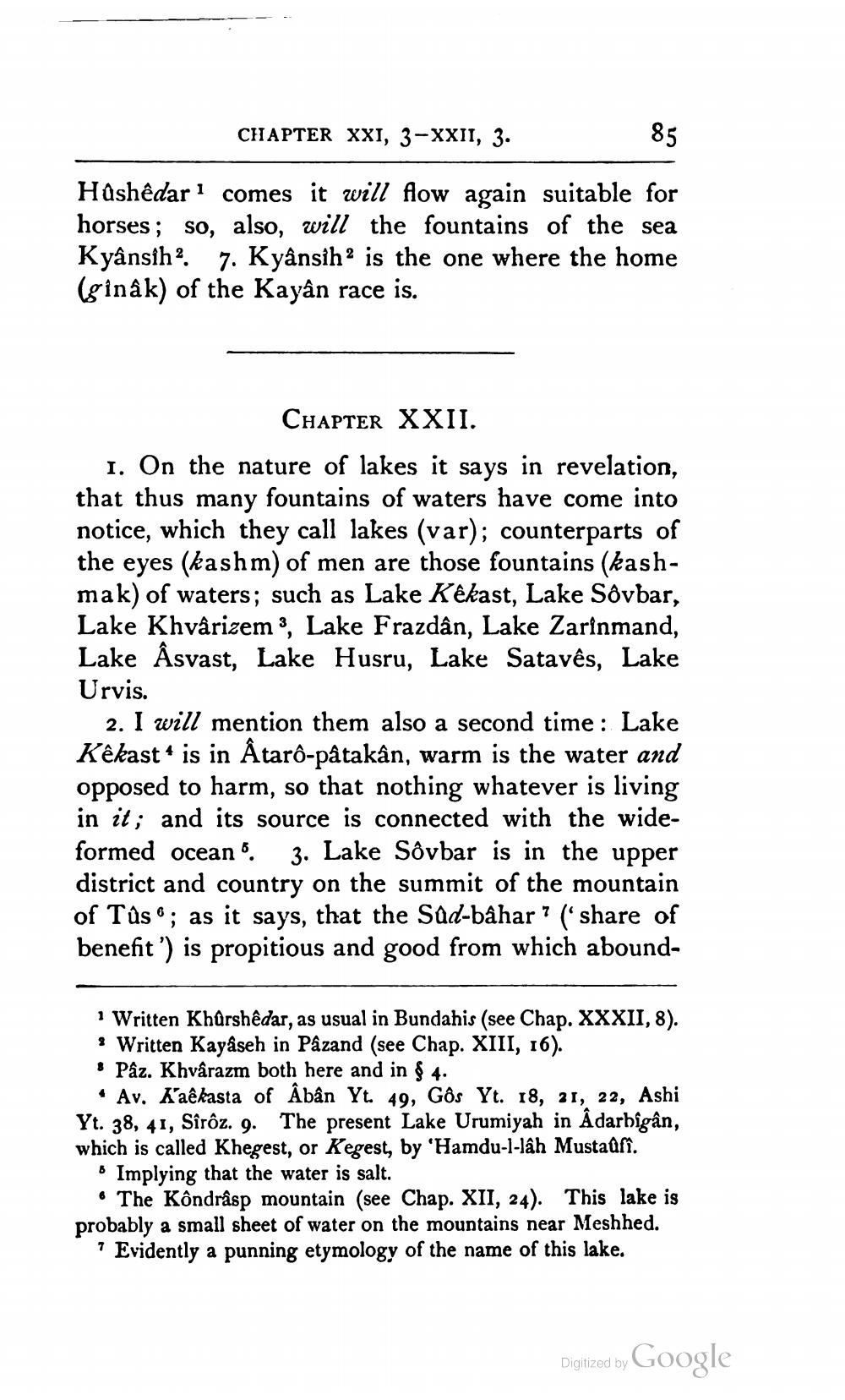________________
CHAPTER XXI, 3-XXII, 3.
85
Hûshêdar 1 comes it will flow again suitable for horses; so, also, will the fountains of the sea Kyânsih2. 7. Kyânsih? is the one where the home (ginâk) of the Kayân race is.
CHAPTER XXII. 1. On the nature of lakes it says in revelation, that thus many fountains of waters have come into notice, which they call lakes (var); counterparts of the eyes (kashm) of men are those fountains (kashmak) of waters; such as Lake Kêkast, Lake Sôvbar, Lake Khvârizem 3, Lake Frazdân, Lake Zarinmand, Lake Âsvast, Lake Husru, Lake Satavês, Lake Urvis.
2. I will mention them also a second time: Lake Kêkast + is in Atarô-pâtakân, warm is the water and opposed to harm, so that nothing whatever is living in it; and its source is connected with the wideformed ocean 6. 3. Lake Sôvbar is in the upper district and country on the summit of the mountain of Tûs ; as it says, that the Sud-bahar? (share of benefit ') is propitious and good from which abound
1 Written Khůrshedar, as usual in Bundahis (see Chap. XXXII, 8). • Written Kayâseh in Pâzand (see Chap. XIII, 16). • Pâz. Khvârazm both here and in § 4.
• Av. K'aêkasta of âbân Yt. 49, Gôs Yt. 18, 21, 22, Ashi Yt. 38, 41, Sîrôz. 9. The present Lake Urumiyah in Adarbigân, which is called Khegest, or Kegest, by 'Hamdu-l-lâh Mustadfi.
• Implying that the water is salt.
• The Kôndrâsp mountain (see Chap. XII, 24). This lake is probably a small sheet of water on the mountains near Meshhed.
? Evidently a punning etymology of the name of this lake.
Digitized by
Digitized by Google




